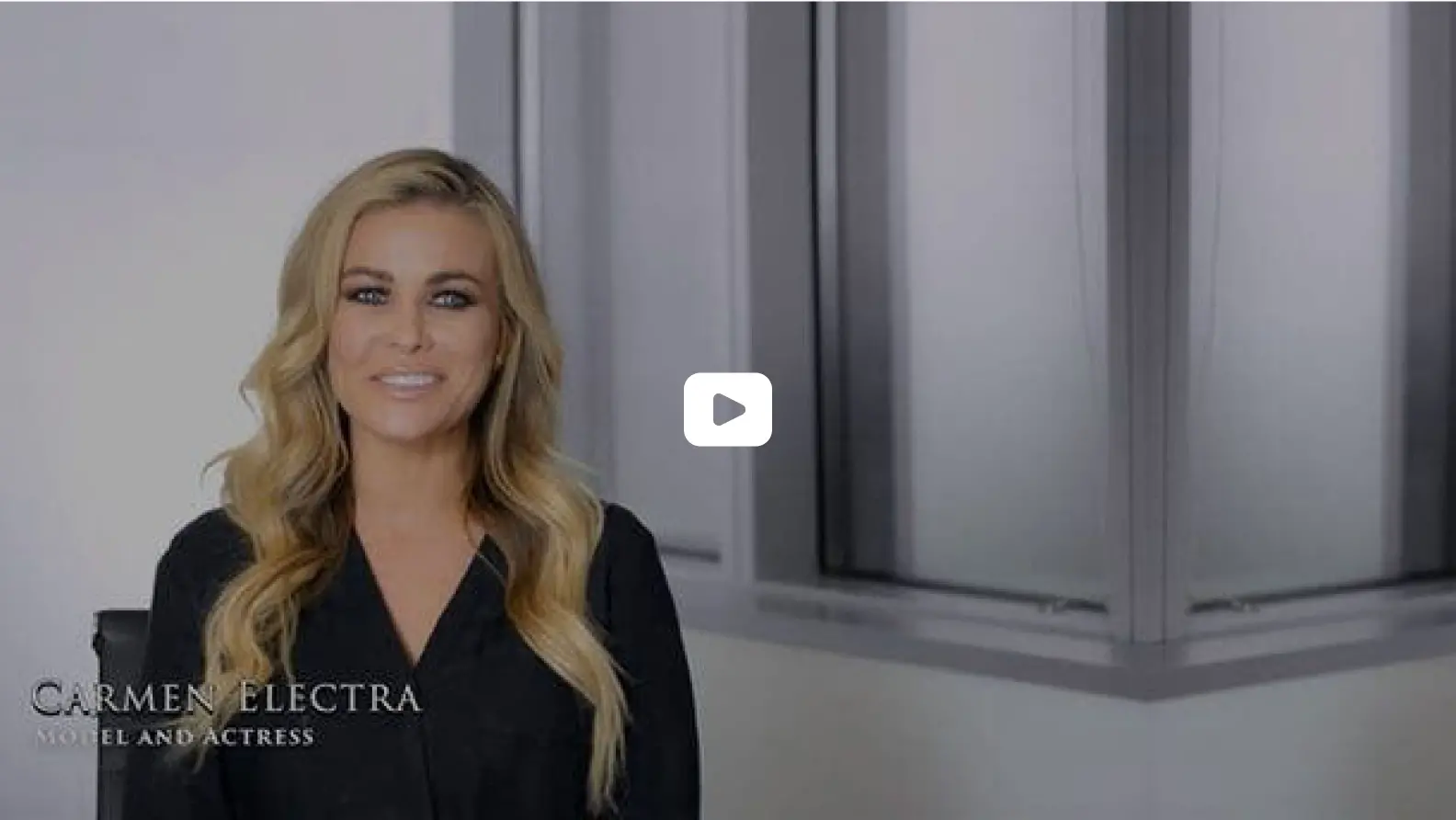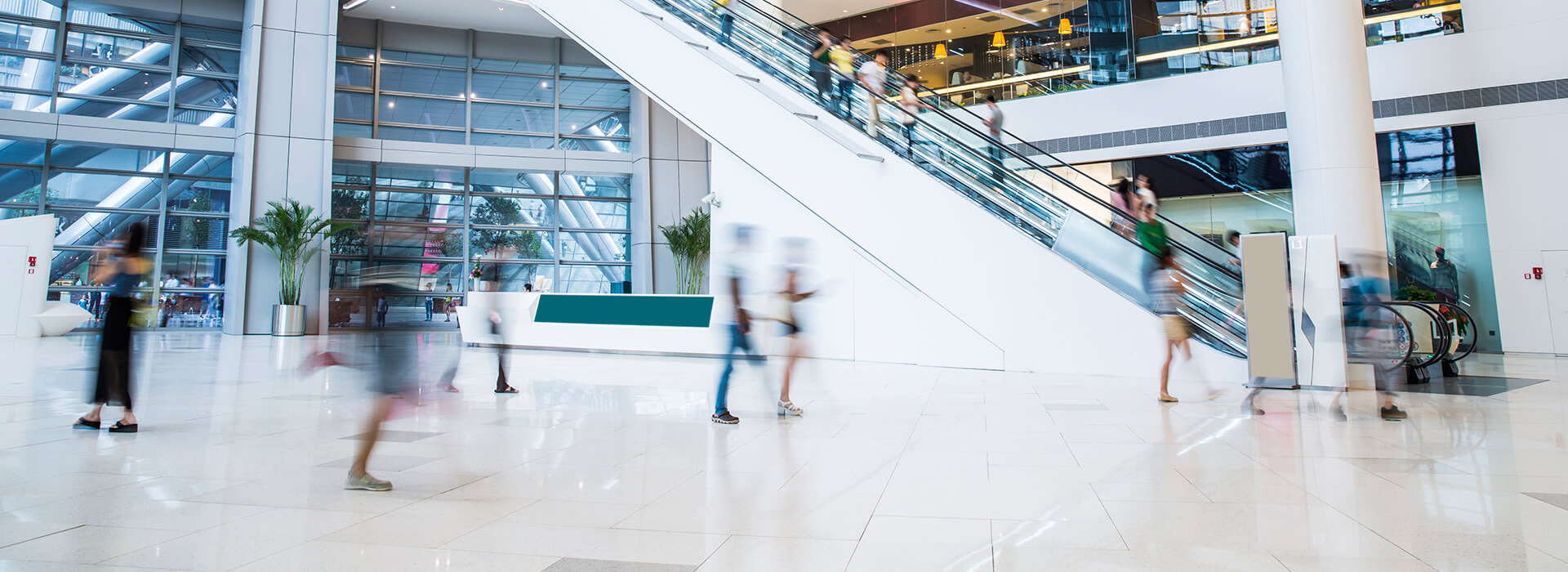
5 Steps to Take After an Accident on Someone Else’s Property
Injured While on Someone Else’s Property? Here’s a Legal Analysis on Who Could Be Held Accountable for Your Injuries
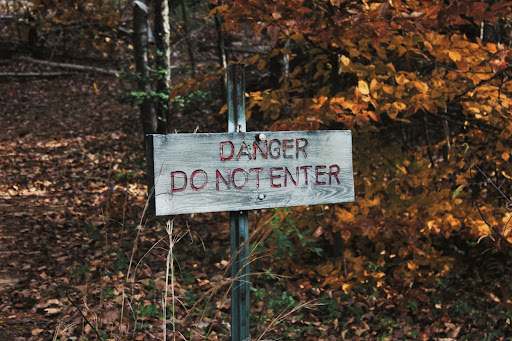
Whether you slipped on a wet floor, tripped over debris, or fell on a broken step at a neighbor’s home, your injuries can be severe and life-changing. You will need to receive treatment for these injuries, which can be quite costly. If your premises liability accident was caused by the negligence of the property owner, you may be entitled to acquire compensation for damages.
At West Coast Trial Lawyers, our qualified premises liability attorneys are readily available to assist victims of personal injury. We will assess your case to determine what necessary steps are needed to be fulfilled in order to get you a fair settlement offer that will cover your losses.
To schedule a free consultation, please contact our 24/7 legal team by calling 213-927-3700 or filling out our quick contact form.
Steps to Take After a Premises Liability Accident
-
- Medical Treatment. If you were hurt on someone else’s property, or anywhere for that matter, your health must always be your first concern. You should see a doctor immediately to check for any serious injuries, such as a fractured bone or internal bleeding. A doctor will need to complete a full medical report to document the extent of your injuries. This report is also a crucial piece of evidence that can be used in your claim. Furthermore, if you do not consult with a doctor, the insurance companies are likely to argue that you weren’t really hurt.
- Gather Evidence. Make sure to photograph your injuries, damages, what caused the accident, and where it took place. Witness information may also be beneficial to acquire. Their testimony can help build up your premises liability claim.
- Obtain an Incident Report. If your injury occurred in a public setting, such as a grocery store, then you should report it to the store manager. They will create an incident report and send it over to the corporate office. You may request a copy of this report to use as a piece of evidence if you choose to file a premises liability claim.
- Be Careful With What You Say. It’s perfectly normal to feel emotional after being hurt. But try to not speak at all about the accident with the property owner or landlord. Most importantly, do not blame anyone for the accident nor should you admit to liability.
- Consult a Premises Liability Attorney. Do not speak to your insurance company before you contact a premises liability attorney. The attorney will guide you through the do’s and don’ts of filing a claim.
What to Think About After an Accident on Someone’s Property
Did the property owner give you a warning about any hazards in their premises prior to entering their home? If not, then they could be held liable for allowing visitors to step into an unsafe environment. Here are some common factors that have led a victim to file a premises liability claim against a property owner:
- Snow and ice accidents,
- Broken steps,
- Dog bites,
- Damaged flooring,
- Defective electric wiring,
- Water leaks or flooding,
- Wet and slippery floors, and
- Toxic fumes or chemicals.
If a property owner was fully or partially aware of these dangerous conditions in their home and did nothing to resolve any of the problems, then they can be held accountable for the victim’s injuries.
However, the property owner will not be held liable for any damages caused by a minor defect on their premises. Insignificant defects vary depending on the type of defect and injuries.
Company Liability for Personal Injuries
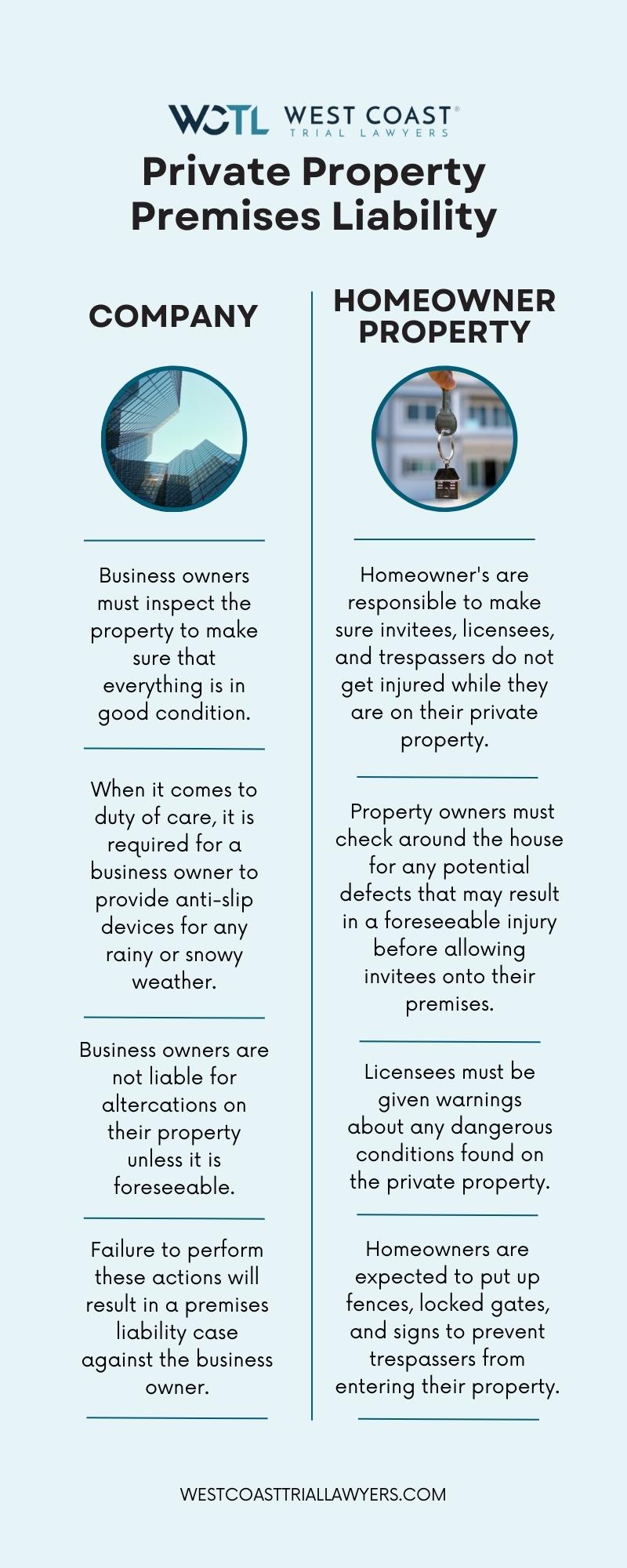
Business owners are expected to keep a safe environment for any individual that steps into it. To reach this objective, the business owner is required to inspect the property to make sure that everything is in good condition. Failure to perform this action will result in an individual being harmed, thus resulting in a premises liability case against the business owner. This is primarily why inspections are important. Regular inspection will find defects or damages, which will then make it easier for the business owner to know exactly what to fix.
When it comes to duty of care, it is required for the business owner to provide anti-slip devices for rainy or snowy weather. Additionally, they may have warning signs available to give individuals a head’s up about puddles or a slippery floor on their private property. If a business owner follows through with either of these actions, they will keep individuals safe from harm.
One thing a business owner is not liable for is an altercation on their property. Business owners are not responsible for the actions committed by a third party. If two individuals get into a physical altercation with each other, then none of them are eligible to bring a premises liability lawsuit against the private property owner.
However, if these actions were foreseeable, there is a chance that the business owner may have the responsibility to prevent this altercation from occurring. An example could be individuals being continuously assaulted or robbed due to lack of security in private property. A victim has the authority to initiate a premises liability suit against the business owner due to their injuries, along with not accommodating to a foreseeable issue.
Homeowner Liability for Personal Injuries
Homeowners have a variety of responsibilities for invitees, licensees, and trespassers.
- Invitees. This group gets the most protection. Homeowners are expected to make sure their home is in good condition for the safety of their friends, family, or guests. Responsibilities include checking around the house for any potential defects that may result in a foreseeable injury.
- Licensees. Homeowners must give warnings to licensees about any dangerous conditions that are in their private property. Once they are notified, the homeowner has no liability for any potential harm or damage that may come about for the licensees.
- Trespassers. Homeowners are expected to put up fences, locked gates, or signs to prevent trespassers from stepping into their private property.
In a homeowner’s property, there are different types of structures in a home, or around it, that may classify as dangerous. This includes:
- Stairs. Homeowners may be held liable for an individual’s injury if they fell down the stairs due to insufficient lighting. Another example would be not having a handrail appropriately set in place, thus causing the individual to lose balance and injure themselves.
- Pool. The most common victims of swimming pool deaths are children. This is why it is important for a homeowner to make sure that they provide enough warnings and barricades to prevent children from entering the pool.
- Glass-Sliding Door. Generally, homeowners would not be held liable if an individual were to get injured just by simply walking into a door. However, if the door was not properly constructed beforehand and the incident was a foreseeable act, then the homeowner would potentially be held liable for the individual’s injuries.
Contact Us to Find Out How We Can Help
If you have sustained injuries as a result of a premises liability accident, our skilled premises liability attorneys at West Coast Trial Lawyers can help you recover compensation for the losses you have suffered, including medical bills, property damage, lost wages, and pain and suffering.
Contact us today by calling 213-927-3700 or filling out our contact form to schedule a free consultation with our experienced, caring, and compassionate legal team.
